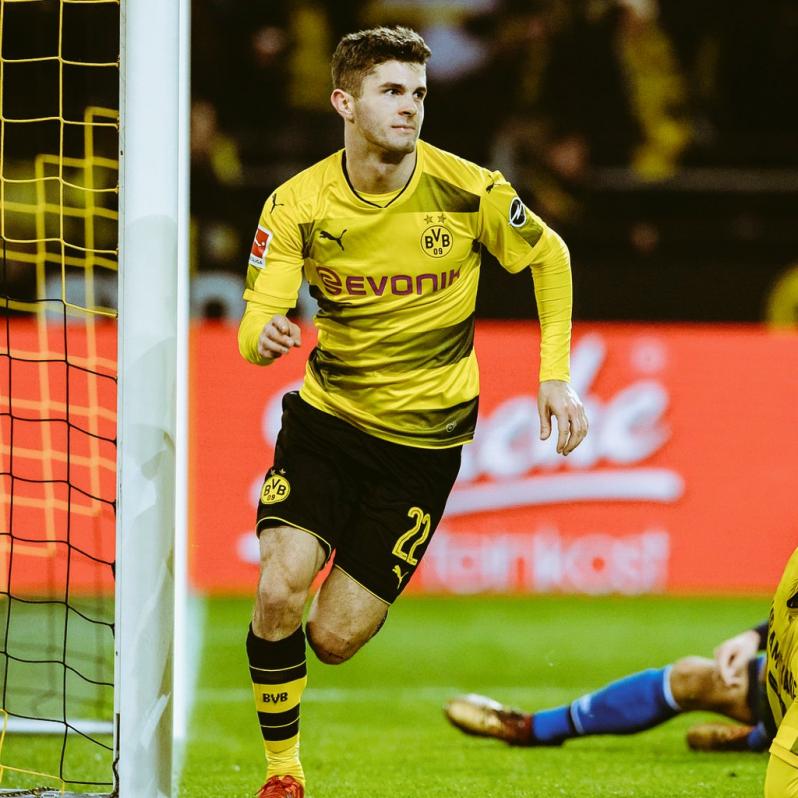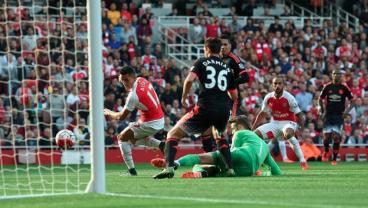At first there was the phenomenon of the Hollywood player, when the likes of David Beckham and Thierry Henry migrated to the world of American soccer. No need to mention Zlatan here, that’s just sad, isn’t it? These larger-than-life players spending their final playing days on MLS pitches was entertaining, but not alarming. They didn’t barricade entry to other players — namely young, talented American players. The clubs did.
These big names didn’t hinder the rise of young stars. Landon Donovan argued the coaches did, and perhaps he was a neglected young star to begin with. After all, why else would a young, promising player, who won the FIFA U-17 World Cup Golden Ball, spend his coming of age years at Bayer Leverkusen?
Now why would one of the best soccer players in U.S. history spend his prime developmental years with a German club instead of having the L.A. Galaxy or San Jose Earthquakes capitalize on him early on? Well, let’s take a quick read on what the MLS all-time leading scorer had to say about it.
“I think part of the issue here in the U.S. still is that you have people coaching the under-14s who really want to be the coach for the full team. So their focus is on winning, results, performances versus developing players,” Donovan said in an interview with ESPN FC.
The 36-year-old explained the contrast in his experience with Bayer Leverkusen, referencing a coaching team of old men whose primary objective is to train and develop young talent. Italy’s Serie A, Germany’s Bundesliga and the English Premier League aren’t exceptions, right?
Star European players don’t face the same problem as their U.S. peers, where coaches, as Donovan passionately explained, are hell bent on winning rather than ensuring a generation of players that would elevate the club’s overall standing.
Soccer clubs are like armies, they need exceptional generals to be successful, but even more so they need homegrown warriors who have the potential of becoming more exceptional than their leaders. That’s how you develop the next generation of leaders. Simple.
It’s what the ancient Spartans did with their young: they produced powerful men from promising boys, a model which would work efficiently in MLS but please, no throwing weak babies off of cliffs.
In 2017, domestic U-22 players played only 2 percent of available minutes in MLS. The U.S. rate is less than half of Serie A and the EPL, with the rates there being 4.2 percent and 4.5 percent, respectively. This means Italians in Italian clubs and English citizens in English clubs get more than double the playing time of their American equivalents.
That may be an indicator as to how negligent U.S. clubs are toward their homemade players, but let’s keep in mind that in 2017 we also saw the highest average of total minutes played by domestic players, which was over 74,000 minutes total.
It’s a spurious correlation. From 2009 until 2017, the rate has been increasing exponentially minus a strong dip in 2016. Here’s why it doesn’t make any sense: the 2018 South American player imports to MLS.
Seven from Argentina, two from Brazil, two from Chile, one from Columbia, one from Ecuador, three from Paraguay, one from Peru, two from Uruguay and, last but certainly not least, seven from Venezuela.
Twenty-six young, fresh and super talented South Americans. What else happened in 2017? 1,110 goals were scored in MLS; only 78 were from homegrown players.
The beautiful game is inclusive, we can all agree on that, and we also know that soccer clubs, like any human entity, behave as businesses, where money and success are interchangeable. Thank you, Capitalism.
However, morality, boys and girls, is still a thing and we must at least try to do the right thing: Let the youth play!
Like Donovan, Christian Mate Pulisic is another talented American soccer player. The 19-year-old who plays for Borussia Dortmund (oh, you lucky bastard) had quite the similar journey as Donovan. Young, especially good at soccer and moved to Germany where young players not only hone their skills, but as Pulisic argues, also thrive in a haven for young players. Unlike Donovan, Pulisic has a critique but with an ambitious solution.

Thank the soccer gods for this guy. Photo: @AlphaaAlonso | Twitter
Pulisic, the youngest player to ever score two goals in the Bundesliga, suggests that the U.S. and MLS plan a pathway for young American talent to play for European clubs. There, they can live in an environment where young talent is appreciated, developed and has a stronger opportunity to actually earn playing time. Then, of course, come back to the U.S. and play there when they deem you ready.
Albeit admirable, Pulisic is basically arguing that when your house has one broken bathroom, don’t fix it. Instead, buy an entirely new house where the plumbing runs just fine and then after you’re well accustomed to using a functioning porcelain throne, go back to your old house and take a dump in the living room.
If the problem isn’t with the young players, then why should they suffer the repercussions of having a negligent club? Clubs that have a business model focusing on imported success rather than playing the more than capable young’uns of their very own nation! It’s a moral catastrophe in the beautiful game more than anything else, and it’s a moral obligation for clubs to prioritize their success via evolving and playing their young.
Here’s a possible solution that may be a bit more effective than Pulisic’s attempt: a contractual agreement between rostered young players and their clubs that involves a mutually consented-upon clause which dictates that the player gets X amount of playing time within the first few months. Now that is a scary attempt at legal writing, no wonder Shakespeare hated lawyers, but let’s face it, these kids are probably just happy being signed and wouldn’t risk fighting for their right to play.
In this case, if the player doesn’t like it or vice versa, plenty of fish in the sea. Donovan and Pulisic both exported themselves to play outside of their home nations, but hopefully, one day, the hard working and talented youth could get a chance growing here and not somewhere else. No wonder the U.S. has yet to win a men’s World Cup!





